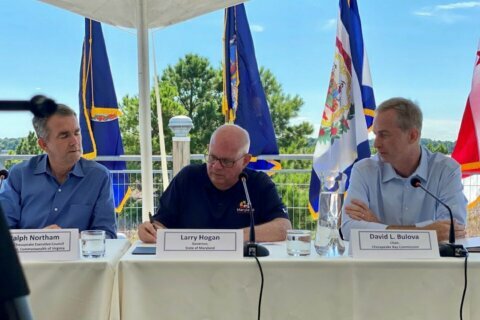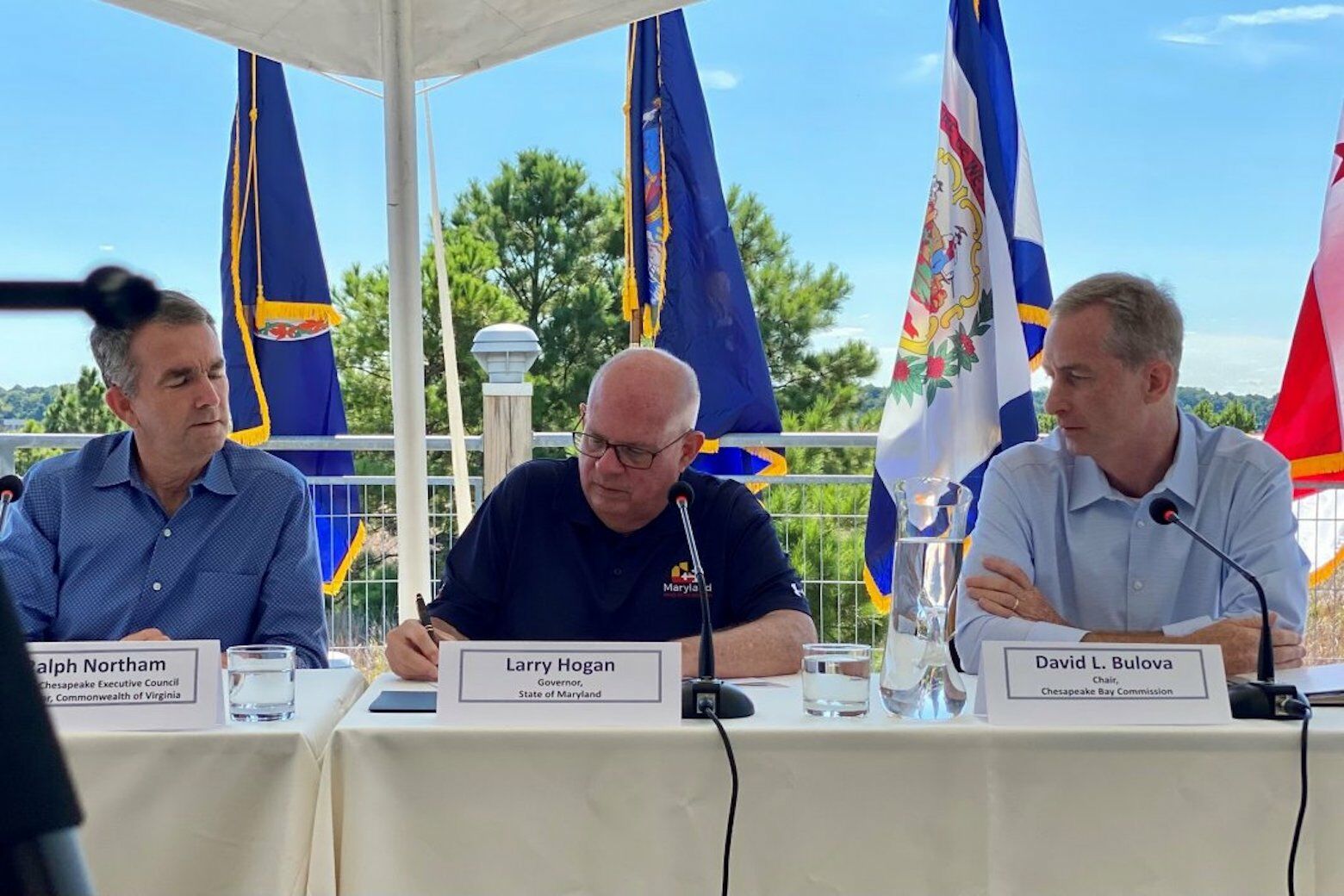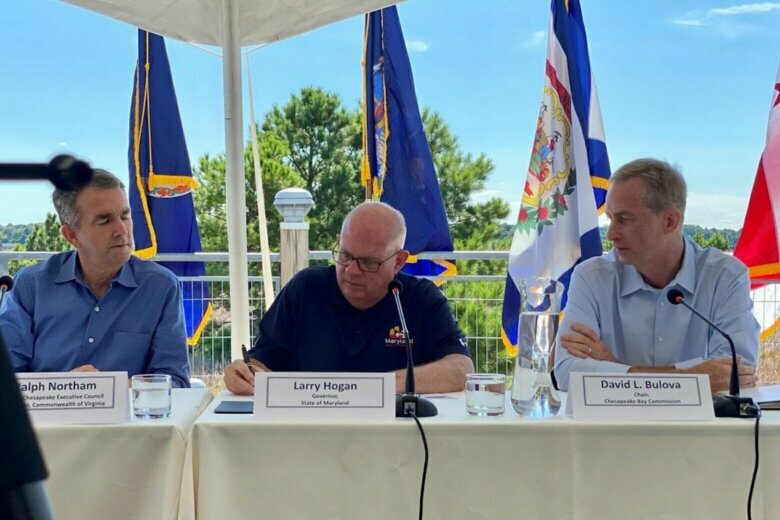This article was republished with permission from WTOP’s news partners at Maryland Matters. Sign up for Maryland Matters’ free email subscription today.


This content was republished with permission from WTOP’s news partners at Maryland Matters. Sign up for Maryland Matters’ free email subscription today.
Gov. Lawrence J. Hogan Jr. (R) traveled to Virginia Beach on Friday for the annual meeting of the Chesapeake Executive Council, a regional policymaking body consisting of the governors of the six Bay watershed states, the mayor of the District of Columbia, the chair of the Chesapeake Bay Commission and the administrator of the U.S. Environmental Protection Agency.
During the meeting, at the Chesapeake Bay Foundation’s Brock Environmental Center, Hogan, Virginia Gov. Ralph S. Northam (D) and other leaders signed a “Collective Action for Climate Change” directive that commits the states and federal government to utilize scientific, modeling, monitoring and planning capabilities to prioritize the communities, working lands and habitats that are most vulnerable to the risks that climate change is bringing to the region. The pact specifically commits the parties to helping marginalized communities by providing them with resources to adapt to climate change and mitigate the impact, with a particular focus on wetlands, tree canopies and environmental literacy.
“The Climate Directive we are signing today is the latest example of why this partnership is so important,” said David L. Bulova, a Democratic member of the Virginia House of Delegates who is chair of the Chesapeake Bay Commission, which consists of lawmakers from Maryland, Virginia and Pennsylvania. “Collective action allows us to apply the best science possible so that we can understand and mitigate the impacts of a changing climate and prioritize resources toward our most vulnerable communities. We need to do to this if we want a more resilient landscape and watershed.”
But even though his organization served as host for the meeting, William C. Baker, president of the Chesapeake Bay Foundation, said the document the stakeholders signed amounted to “taking small steps at a time when bold action is needed.” Baker was especially critical because he said the other parties are not holding Pennsylvania accountable for failing to meet Chesapeake Bay pollution reduction goals that each state agreed to as part of a national directive several years ago.
“For Bay restoration to succeed, each of the jurisdictions must meet their promised pollution reductions,” he said in a statement. “EPA agreed to hold them accountable if they slip. Once again, the Council ignored the failure of Pennsylvania to meet its commitments. Worse yet, EPA failed to hold the Commonwealth accountable, even as CBF, its partners, and the Attorneys General of Delaware, Maryland, the District of Columbia, and Virginia are suing EPA in federal court to do just that. If the Council and EPA refuse to exert leadership, Bay restoration efforts are doomed to fail.”
On the same day Hogan went to Virginia Beach to sign the climate change initiative, he also wrote to House Speaker Adrienne A. Jones (D-Baltimore County) and Senate President Bill Ferguson (D-Baltimore City) outlining his goals for environmental legislation he’d like to see enacted in the 2022 General Assembly session.
“We are leading the way when it comes to safeguarding our environment, but there is more work to be done that requires legislative action,” Hogan wrote.
In the letter, the governor said his four top legislative priorities are:
- Passing a bill that got through the Senate this year but did not make it out of the House that would have created a public-private financing mechanism for certain conservation measures.
- Passing his legislation, the Clean and Renewable Energy Standard, which lawmakers have largely ignored over the past two legislative sessions.
- Removing funding restrictions in Maryland law that Hogan said limit the ability of the state to expand land conservation programs and create more public recreation spaces.
- Following through on recommendations from Hogan’s Renewable Energy Development and Siting task force on where to place large renewable energy installations in the state.
“Our administration looks forward to working with you and your colleagues to continue our progress on growing our green economy, restoring the Chesapeake Bay, and addressing climate change,” Hogan concluded in his letter to the legislature’s presiding officers. “These concerns are too important to lose this opportunity to act now.”
jkurtz@marylandmatters.org
To see more stories from our “Climate Calling” project, click here.








